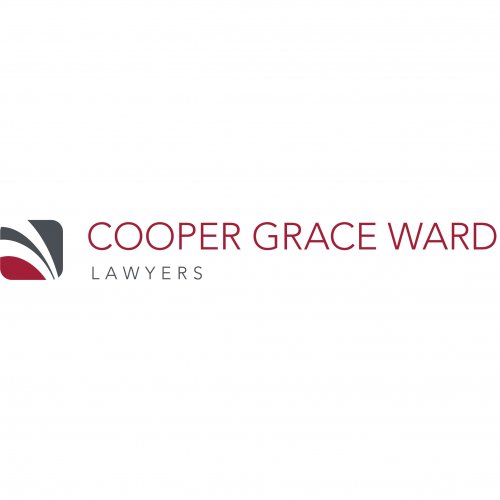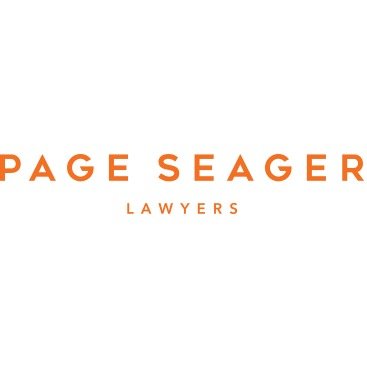Best Acquisition / Leveraged Finance Lawyers in Australia
Share your needs with us, get contacted by law firms.
Free. Takes 2 min.
Or refine your search by selecting a city:
List of the best lawyers in Australia
About Acquisition / Leveraged Finance Law in Australia
Acquisition finance refers to the funding of company acquisitions, while leveraged finance involves the use of a significant amount of borrowed money to fund these acquisitions. In Australia, acquisition and leveraged finance are critical elements in the structure of mergers, acquisitions, and corporate takeovers. This area of law covers the negotiation and structuring of financial arrangements, taking security over assets, and compliance with various regulatory frameworks. Australian acquisition and leveraged finance deals are often complex, involving multiple parties such as banks, private equity sponsors, and other financial institutions.
Why You May Need a Lawyer
Seeking legal advice in acquisition or leveraged finance transactions is highly recommended because of the complexity and high stakes involved. Common situations requiring legal help include:
- Negotiating finance documents for a business acquisition or merger
- Structuring deals to comply with Australian laws and regulations
- Understanding lender requirements and financial covenants
- Securing assets and conducting due diligence on target entities
- Advising on directors’ duties and potential liabilities
- Managing risks associated with cross-border or multi-jurisdictional deals
- Dealing with consortium arrangements and intercreditor issues
- Resolving disputes between buyers, sellers, and financiers
A lawyer ensures that your interests are protected and that all transactions proceed smoothly within the legal framework.
Local Laws Overview
Several key local laws and regulations govern acquisition and leveraged finance in Australia:
- Corporations Act 2001 (Cth): Sets out requirements for company borrowing, financial assistance, and directors’ duties.
- Personal Property Securities Act 2009 (Cth): Provides the rules for registering security interests over assets.
- Foreign Investment Review Board (FIRB): Oversees foreign investment in Australian entities, which can impact acquisition finance structures.
- Banking Code of Practice: Outlines lenders’ obligations to borrowers and ethical lending standards.
- Takeovers Panel and Australian Securities & Investments Commission (ASIC): Monitor compliance with takeover rules and financial services laws.
- Competition and Consumer Act 2010 (Cth): Addresses anti-competitive arrangements that may arise during mergers or acquisitions.
Transactions must also consider relevant tax laws and, in some cases, industry-specific restrictions. Due diligence, regulatory approvals, and careful documentation are essential for compliance.
Frequently Asked Questions
What is the difference between acquisition finance and leveraged finance?
Acquisition finance involves funding a business purchase, while leveraged finance specifically refers to using a high degree of borrowed money to fund such transactions, often increasing financial risk and potential return.
Can I use the assets of the target company as security for the loan?
Yes, in Australia it is common to take security over the target company’s assets. However, this is subject to legal restrictions, due diligence, and financial assistance rules under the Corporations Act.
What is financial assistance and why does it matter?
Financial assistance occurs when a target company helps fund its own acquisition, which is regulated under the Corporations Act. Legal advice is needed to ensure compliance and avoid penalties.
How does the Personal Property Securities Register (PPSR) work in these transactions?
The PPSR is a national online database where security interests in personal property must be registered to ensure priority and enforceability in case of default. Proper registration is crucial in acquisition and leveraged finance deals.
What are typical steps in an acquisition financing process?
Common steps include deal negotiation, due diligence, arranging finance, drafting and negotiating finance documents, obtaining regulatory approvals, and closing the transaction.
What approvals might be required for foreign investors?
Foreign investors may need approval from the Foreign Investment Review Board (FIRB) before proceeding with certain acquisitions, depending on the nature and size of the investment.
What are the risks of participating in a leveraged buyout?
Risks include increased financial leverage, potential difficulties in meeting loan obligations, regulatory breaches, and reputational damage if a transaction fails or is challenged.
Are there restrictions on borrowing from overseas lenders?
While borrowing from overseas lenders is allowed, there may be tax implications like withholding tax and compliance with the Foreign Acquisitions and Takeovers Act, among others.
How do intercreditor agreements work in leveraged finance?
Intercreditor agreements establish the rights and priorities of different lenders, particularly between senior and mezzanine or subordinate financiers, to manage potential conflicts in case of default.
How can a lawyer help with due diligence in these transactions?
A lawyer will review legal, contractual, and regulatory issues, investigate title and security interests, and help identify risks or liabilities that may affect the acquisition or financing structure.
Additional Resources
- Australian Securities & Investments Commission (ASIC) - Provides guidance on company law and finance regulations.
- Foreign Investment Review Board (FIRB) - Offers information for foreign acquirers of Australian entities.
- Australian Competition & Consumer Commission (ACCC) - Monitors competition laws relevant to mergers and acquisitions.
- Takeovers Panel - Resolves disputes relating to company takeovers in Australia.
- Australian Prudential Regulation Authority (APRA) - Regulates banks and financial institutions involved in lending.
- Law Council of Australia - Offers directories and resources on finding specialist lawyers in finance law.
Next Steps
If you are considering an acquisition or leveraged finance transaction in Australia, or simply need advice on structuring financing, taking the following actions is recommended:
- Identify your key objectives, risks, and stakeholders in the proposed transaction
- Gather all relevant business and financial documentation
- Seek an experienced lawyer who specialises in acquisition and leveraged finance law
- Arrange an initial consultation to discuss your goals, timelines, and potential legal issues
- Ensure your lawyer conducts thorough due diligence and explains your legal and compliance obligations clearly
- Maintain clear communication with all professional advisors, including accountants and tax specialists
- Request upfront information about fees and scope of legal advice
Early and focused legal advice can help protect your interests, manage risks, and ensure a successful acquisition or finance transaction in line with Australian laws.
Lawzana helps you find the best lawyers and law firms in Australia through a curated and pre-screened list of qualified legal professionals. Our platform offers rankings and detailed profiles of attorneys and law firms, allowing you to compare based on practice areas, including Acquisition / Leveraged Finance, experience, and client feedback.
Each profile includes a description of the firm's areas of practice, client reviews, team members and partners, year of establishment, spoken languages, office locations, contact information, social media presence, and any published articles or resources. Most firms on our platform speak English and are experienced in both local and international legal matters.
Get a quote from top-rated law firms in Australia — quickly, securely, and without unnecessary hassle.
Disclaimer:
The information provided on this page is for general informational purposes only and does not constitute legal advice. While we strive to ensure the accuracy and relevance of the content, legal information may change over time, and interpretations of the law can vary. You should always consult with a qualified legal professional for advice specific to your situation.
We disclaim all liability for actions taken or not taken based on the content of this page. If you believe any information is incorrect or outdated, please contact us, and we will review and update it where appropriate.
Browse acquisition / leveraged finance law firms by city in Australia
Refine your search by selecting a city.

















